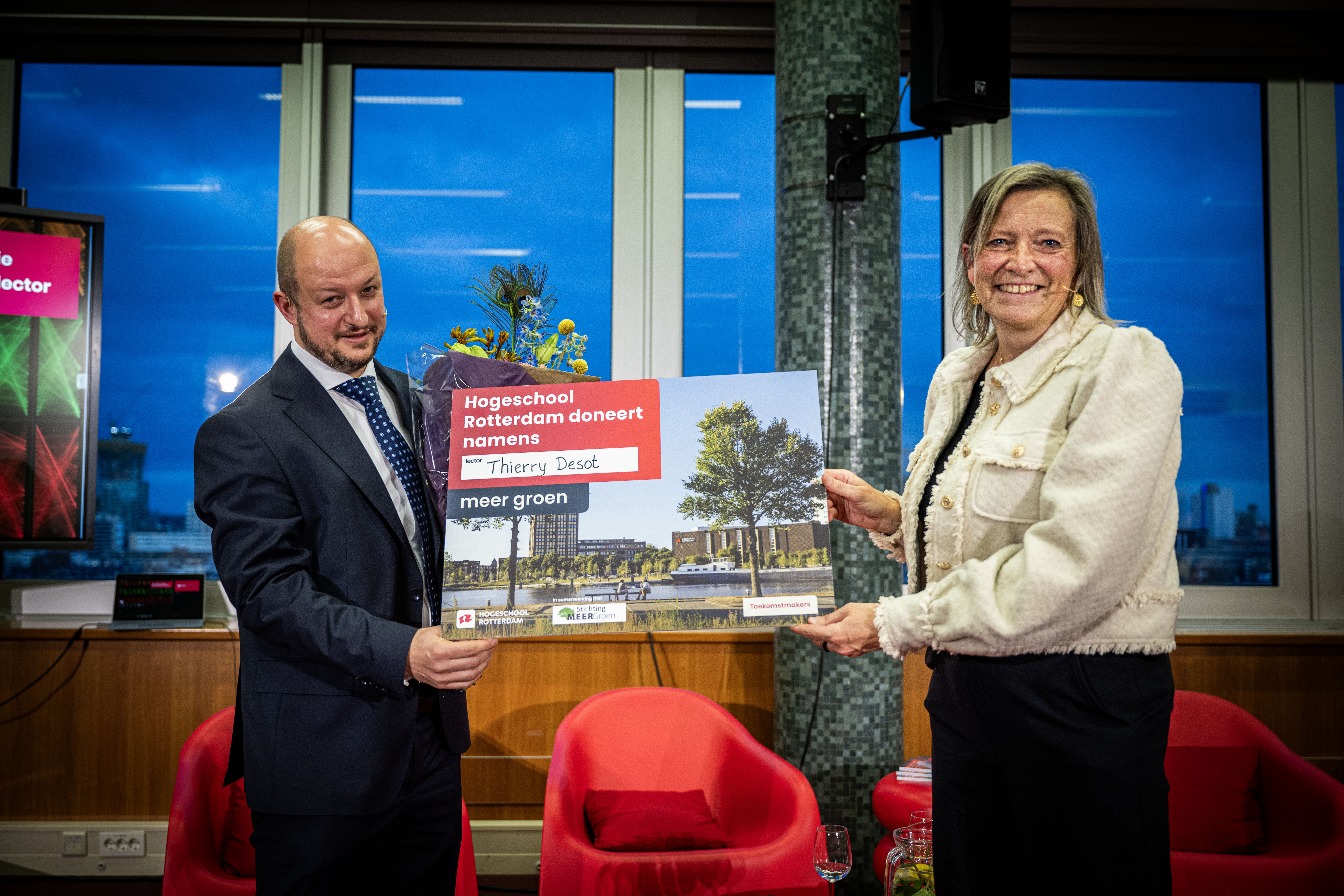Collaboration is key to progression
The afternoon was opened by Heleen Elferink, director of Creating 010, who emphasised the importance of interdisciplinary research. The day's chair, Professor Anja Overdiek, highlighted the growing impact of AI in healthcare and the importance of human values in technological developments.

AI as partner in health care
In his inaugural lecture, Thierry Desot discussed the rise of AI in health care. He explained breakthroughs in language models, such as transformer architectures, that enable applications in medical diagnosis and personalised care. At the same time, he highlighted the risks of bias in data sets. If AI systems are trained on biased or incomplete data, they can reinforce existing inequalities in care. This requires a careful approach to ensure fair and inclusive care. For example, virtual patients that simulate cultural diversity, while raising awareness of biases in both students and AI systems.
Multimodal AI models, which combine text, images and sound, open up new possibilities for diagnosis and prevention. For example, they can detect diseases such as sepsis at an early stage based on patient records and behavioural data. Virtual patients are also a powerful tool for training healthcare professionals. One example is the Theravatars project, a collaboration between Creating 010, the Erasmus School of Social and Behavioural Sciences and the technology company Kurtosis. This project develops advanced virtual patients that are both technically and culturally relevant.
Opportunity and ethical challenges of AI
The inaugural reading was followed by a panel discussion chaired by Professor Ben van Lier. Panelists, including professors and industry representatives, discussed the opportunities and ethical challenges of AI in health care.
For example, AI can facilitate administrative tasks and assist healthcare professionals in decision making. NLP technologies, for example, help automate reporting, while virtual patients contribute to more effective teaching. However, human supervision remains crucial. While AI can identify medical risks, not every patient wants to receive this information. Healthcare providers have a key role to play in carefully communicating AI-based insights.
Another example that captured the imagination was Professor Sunil Choenni's “toilet bowl of the future.” This concept uses AI and wastewater analysis to identify health risks early, illustrating how AI can contribute to preventative care and health monitoring.
The panel also discussed Europe's reliance on US and Chinese AI technologies. When European health care organisations use foreign AI systems, they face risks in terms of privacy, data security and regulatory compliance. To ensure privacy and GDPR compliance, they need to invest in their own AI infrastructure and responsible data management.
Growth and connection
The afternoon ended with the official appointment of Thierry Desot as professor. As a symbol of growth and collaboration, he received a cheque on behalf of the Rotterdam University of Applied Sciences for the planting of new greenery.
You can watch the video of the event here.
